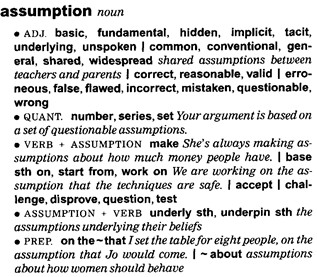
КАТЕГОРИИ:
Архитектура-(3434)Астрономия-(809)Биология-(7483)Биотехнологии-(1457)Военное дело-(14632)Высокие технологии-(1363)География-(913)Геология-(1438)Государство-(451)Демография-(1065)Дом-(47672)Журналистика и СМИ-(912)Изобретательство-(14524)Иностранные языки-(4268)Информатика-(17799)Искусство-(1338)История-(13644)Компьютеры-(11121)Косметика-(55)Кулинария-(373)Культура-(8427)Лингвистика-(374)Литература-(1642)Маркетинг-(23702)Математика-(16968)Машиностроение-(1700)Медицина-(12668)Менеджмент-(24684)Механика-(15423)Науковедение-(506)Образование-(11852)Охрана труда-(3308)Педагогика-(5571)Полиграфия-(1312)Политика-(7869)Право-(5454)Приборостроение-(1369)Программирование-(2801)Производство-(97182)Промышленность-(8706)Психология-(18388)Религия-(3217)Связь-(10668)Сельское хозяйство-(299)Социология-(6455)Спорт-(42831)Строительство-(4793)Торговля-(5050)Транспорт-(2929)Туризм-(1568)Физика-(3942)Философия-(17015)Финансы-(26596)Химия-(22929)Экология-(12095)Экономика-(9961)Электроника-(8441)Электротехника-(4623)Энергетика-(12629)Юриспруденция-(1492)Ядерная техника-(1748)
Collocation
|
|
|
|
Task 10. [in pairs]
Read through the information below. Try to find answers to the questions above. Are there any other reasons to study collocations except for those you already have in mind?
| Collocation is the way words combine in a language to produce natural-sounding speech and writing. For example, in English you say strong wind but heavy rain. It would not be normal to say *heavy wind or *strong rain. And whilst you, being an intermediate learner, can recognize all four of these words, it takes a greater degree of competence with the language to combine them correctly in productive use. To a native-speaker these combinations are highly predictable; to you they are anything but. Collocation runs through the whole of the English language. No piece of natural spoken or written English is totally free of collocation. For you, choosing the right collocation will make your speech and writing sound much more natural, more native-speaker-like, even when basic intelligibility does not seem to be at issue. If you say *strong rain, you may make yourself understood, but possibly not without provoking a smile or a correction, which may or may not matter. But, perhaps even more importantly than this, language that is collocationally rich is also more precise. This is because most single words in the English language – especially the more common words - embrace a whole range of meanings, some quite distinct, and some that shade into each other by degrees. The precise meaning in any context is determined by that context: by the words that surround and combine with the core word - by collocation. A student who chooses the best collocation will express himself much more clearly and be able to convey not just a general meaning, but something quite precise. Compare, for example, the following two sentences: This is a good book and contains a lot of interesting details. This is a fascinating book and contains a wealth of historical detail. Both sentences are perfectly 'correct' in terms of grammar and vocabulary, but which communicates more (both about the book under discussion and the person discussing it)? |
Task 11. [individually]
| All good dictionaries now include examples of common collocations but they do it in different ways: sometimes they are in bold print after the definition; sometimes in italics after the definition; and sometimes in the definition and examples. |
Examine the dictionary entry below. How are collocations introduced there?

| Still the power of normal dictionaries is limited when it comes to constructing texts, since they include only some collocations. So, if you need more collocation you should consult a collocations dictionary. |
Task 12. [individually]
(a) Study the entry from Oxford Collocations Dictionary for students of English.

(b) Translate the following into English.
1. Сделать неверное предположение…
2. В основе этой теории лежат верные предположения.
3. Исходить из допущения, что …
4. Этот аргумент основывается на ряде общепринятых предположений.
5. Оспаривать основные допущения …
Task 13. [individually]
Match each noun with the group of adjectives it can collocate with.
|
|
|
|
|
Дата добавления: 2014-12-27; Просмотров: 607; Нарушение авторских прав?; Мы поможем в написании вашей работы!